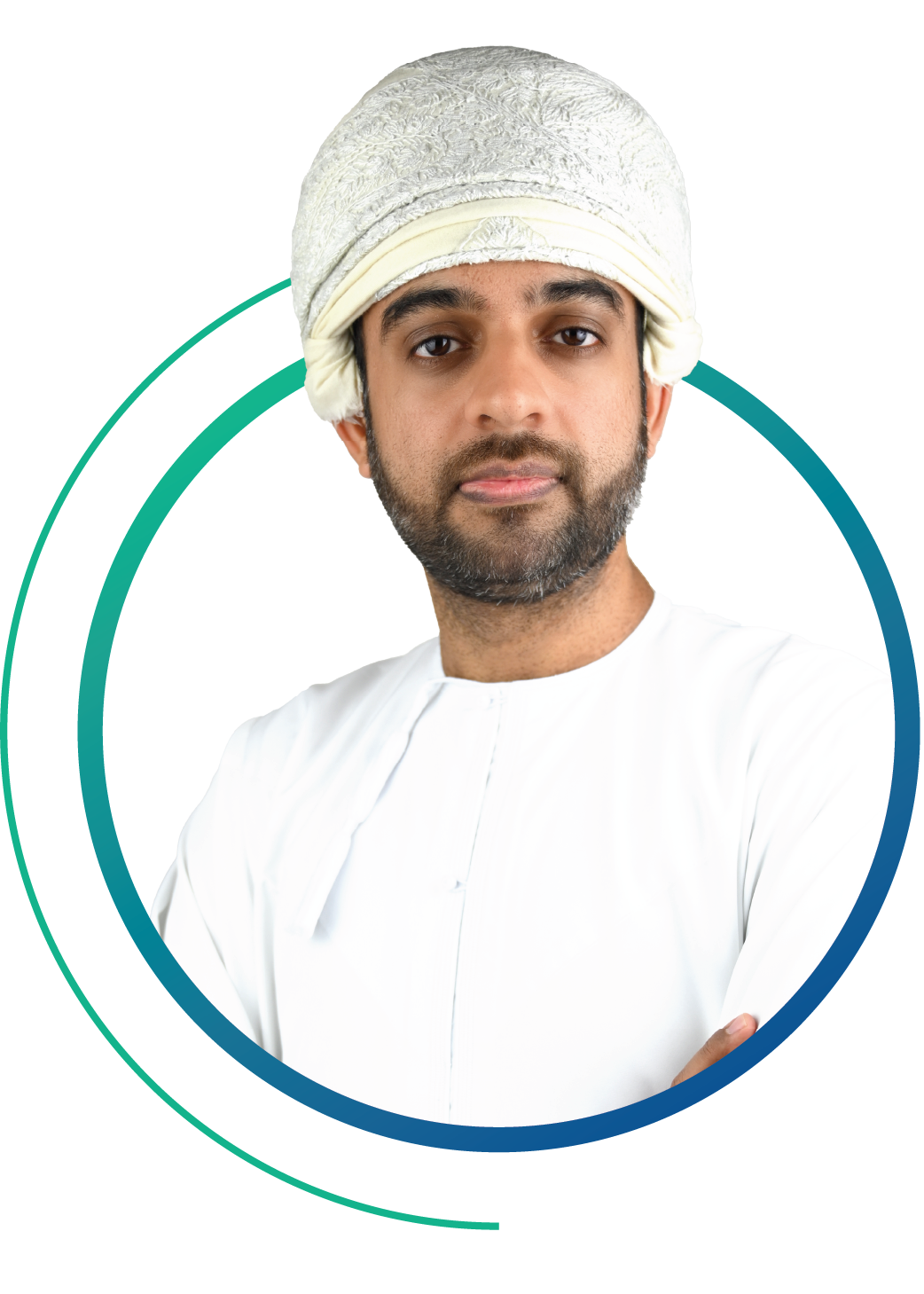Overview
Respiratory medicine is a medical specialty focused on the diagnosis and treatment of diseases related to the respiratory system. Pulmonologists, specialized physicians in this field, manage conditions affecting the lungs and respiratory tract, including chronic respiratory diseases, infections, and lung cancer. They play a critical role in improving lung health, managing breathing disorders, and addressing respiratory complications in patients of all ages.
TREATMENTS & PROCEDURE
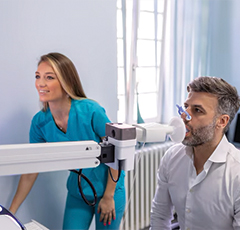
Diagnostic tests to evaluate lung capacity, airflow, and gas exchange.
Pulmonary function tests (PFTs) measure lung volume, capacity, and the efficiency of gas exchange. They help diagnose conditions such as asthma, chronic obstructive pulmonary disease (COPD), and pulmonary fibrosis.
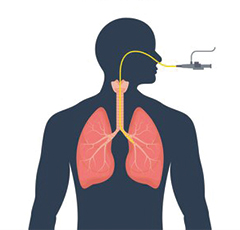
Procedure using a thin, flexible tube to examine the airways and obtain tissue samples.
Bronchoscopy involves inserting a bronchoscope into the airways to visualize the lungs and collect tissue samples for biopsy. It aids in diagnosing lung infections, tumors, and airway abnormalities.
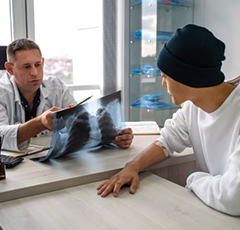
Comprehensive program to improve lung function and quality of life.
Pulmonary rehabilitation combines exercise, education, and lifestyle modifications to enhance lung capacity, manage symptoms, and improve overall health in patients with chronic respiratory conditions.

Diagnosis and treatment of sleep apnea and other sleep-related breathing disorders.
Sleep medicine focuses on diagnosing and managing sleep disorders that affect breathing, such as obstructive sleep apnea (OSA), central sleep apnea, and sleep-related hypoventilation.
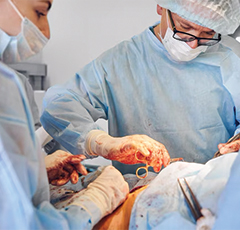
Surgical procedures to treat lung cancer, infections, and other thoracic conditions.
Thoracic surgeons perform surgeries on the lungs and chest cavity to treat conditions like lung cancer, pneumonia, and pleural effusions. Procedures include lung resection, thoracoscopy, and video-assisted thoracic surgery (VATS).
Diagnostic tests to evaluate lung capacity, airflow, and gas exchange.

Pulmonary function tests (PFTs) measure lung volume, capacity, and the efficiency of gas exchange. They help diagnose conditions such as asthma, chronic obstructive pulmonary disease (COPD), and pulmonary fibrosis.
Procedure using a thin, flexible tube to examine the airways and obtain tissue samples.

Bronchoscopy involves inserting a bronchoscope into the airways to visualize the lungs and collect tissue samples for biopsy. It aids in diagnosing lung infections, tumors, and airway abnormalities.
Comprehensive program to improve lung function and quality of life.

Pulmonary rehabilitation combines exercise, education, and lifestyle modifications to enhance lung capacity, manage symptoms, and improve overall health in patients with chronic respiratory conditions.
Diagnosis and treatment of sleep apnea and other sleep-related breathing disorders.

Sleep medicine focuses on diagnosing and managing sleep disorders that affect breathing, such as obstructive sleep apnea (OSA), central sleep apnea, and sleep-related hypoventilation.
Surgical procedures to treat lung cancer, infections, and other thoracic conditions.

Thoracic surgeons perform surgeries on the lungs and chest cavity to treat conditions like lung cancer, pneumonia, and pleural effusions. Procedures include lung resection, thoracoscopy, and video-assisted thoracic surgery (VATS).
Diseases treated
FAQs
Pulmonology is the medical specialty focused on diagnosing and treating diseases of the respiratory system, including the lungs and airways.
PFTs are diagnostic tests that measure lung capacity, airflow, and gas exchange to evaluate respiratory function and diagnose lung diseases.
Pulmonary rehabilitation is a program that combines exercise, education, and lifestyle changes to improve lung function, manage symptoms, and enhance quality of life for patients with chronic lung diseases.
Thoracic surgery involves surgical procedures on the lungs and chest cavity to treat conditions like lung cancer, infections, and pleural disorders, performed by thoracic surgeons.
Pulmonologists treat conditions such as asthma, COPD, pulmonary fibrosis, lung cancer, and respiratory infections.
Bronchoscopy is a procedure using a thin, flexible tube (bronchoscope) to examine the airways, collect tissue samples, and diagnose lung conditions.
Sleep apnea is treated with therapies such as CPAP and BiPAP machines, oral appliances, surgery, and lifestyle modifications to improve breathing during sleep and alleviate symptoms.
Yes, pulmonologists provide support and resources to help patients quit smoking, reducing the risk of developing lung diseases and improving overall respiratory health.















